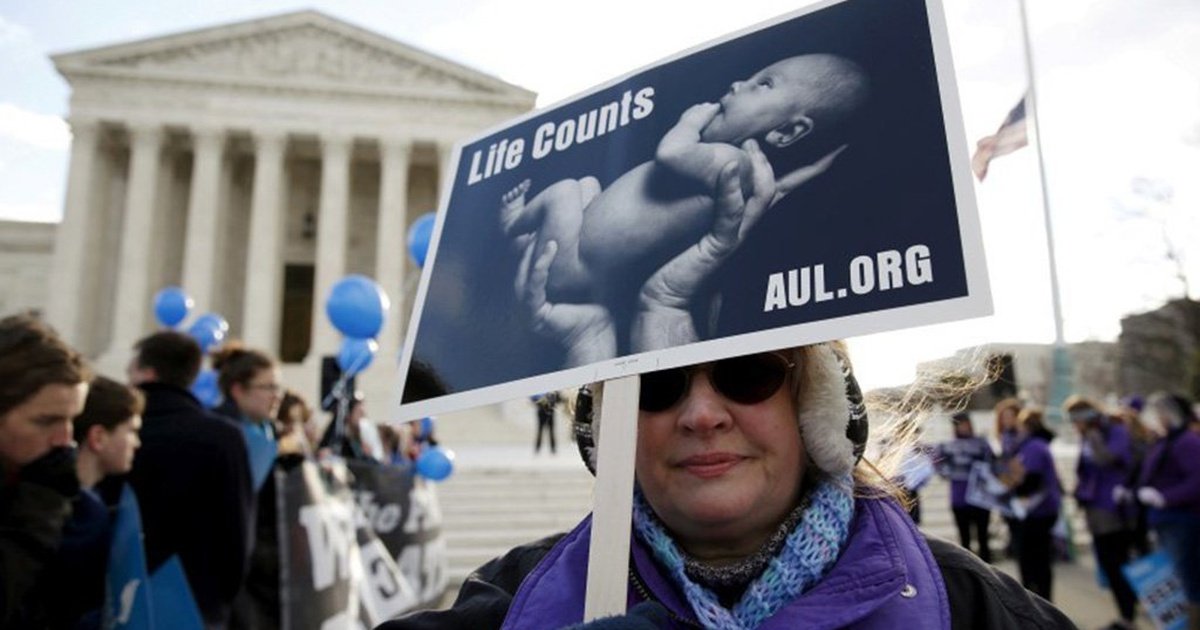BY MIMI NGUYEN LY
The Texas legislature on Tuesday passed a bill that would ban abortion in the state if the U.S. Supreme Court one day overturns Roe v. Wade.
The proposed legislation, HB 1280, would be enacted in the event that Roe v. Wade gets overturned. It would, 30 days after a Supreme Court ruling, make it illegal for a person in the state to “knowingly perform, induce, or attempt an abortion.”
The bill, which had passed the state House in early May, is called the “Human Life Protection Act.” It now heads to Gov. Greg Abbott’s desk. The Republican governor is expected to sign the bill into law, which would make the Lone Star state the latest in passing a “trigger” abortion ban.
Abortion providers can be exempted for abortions carried out in the case of medical emergencies that harm the life of the mother or puts them at risk of “substantial impairment” of major bodily functions.
The text of the bill notes, however, that an abortion provider is prohibited from carrying out or inducing an abortion if they did so because of a “claim or diagnosis that the female would engage in conduct that might result in the female ’s death or in substantial impairment of a major bodily function.”
There are also no exceptions for pregnancies due to rape or incest.
Abortion providers could face at least $100,000 for each attempted abortion committed, and would be charged with at least a second degree felony, which is punishable by two to 20 years in prison in Texas. If the unborn child dies as a result of the abortion, the abortion provider would be charged with a first degree felony, which is punishable by five to 99 years in prison.
“I believe all Texans deserve the opportunity to experience life, liberty and the pursuit of happiness,” Texas Attorney General Ken Paxton said at a hearing for HB 1280 last week, reported The Dallas Morning News. “I believe House Bill 1280, and the companion Senate Bill 9, is the appropriate vehicle to ensure that this right is immediately protected should the Supreme Court overturn the current precedent.”
State Rep. Giovanni Capriglione, the primary author of the bill, expressed excitement over the legislation’s approval in the Texas Senate. He said on Twitter, “With a pro-life lawsuit heading to the conservative SCOTUS, this bill and a favorable ruling would make Texas one of the first states to end abortions.”
The U.S. Supreme Court recently took on a major abortion case to consider an appeal from Mississippi. The state appealed against a lower court ruling that had reversed a Mississippi statute that bans most abortion after 15 weeks of pregnancy. The case would grant the Supreme Court the opportunity to reconsider abortion rulings, including Roe v. Wade and Planned Parenthood v. Casey.
The Roe v. Wade ruling in 1973 prohibited states from banning abortions prior to when the fetus is deemed “viable”—potentially able to live outside its mother’s womb. The ruling said that if unborn children are persons, then they have the right to life. It concluded that unborn children are not persons, and acknowledged that the case to prohibit states from banning abortions would “collapse” if “the fetus is a person,” because then its “right to life would then be guaranteed” by the Constitution.
Abbott recently signed into law a measure to ban abortions if a heartbeat is detected in the fetus, unless there is a medical emergency threatening the mother’s life. A heartbeat can be detected as early as six weeks into a pregnancy.
“The heartbeat bill is now LAW in the Lone Star State,” he said in a statement on May 19. “This bill ensures the life of every unborn child with a heartbeat will be saved from the ravages of abortion.”

